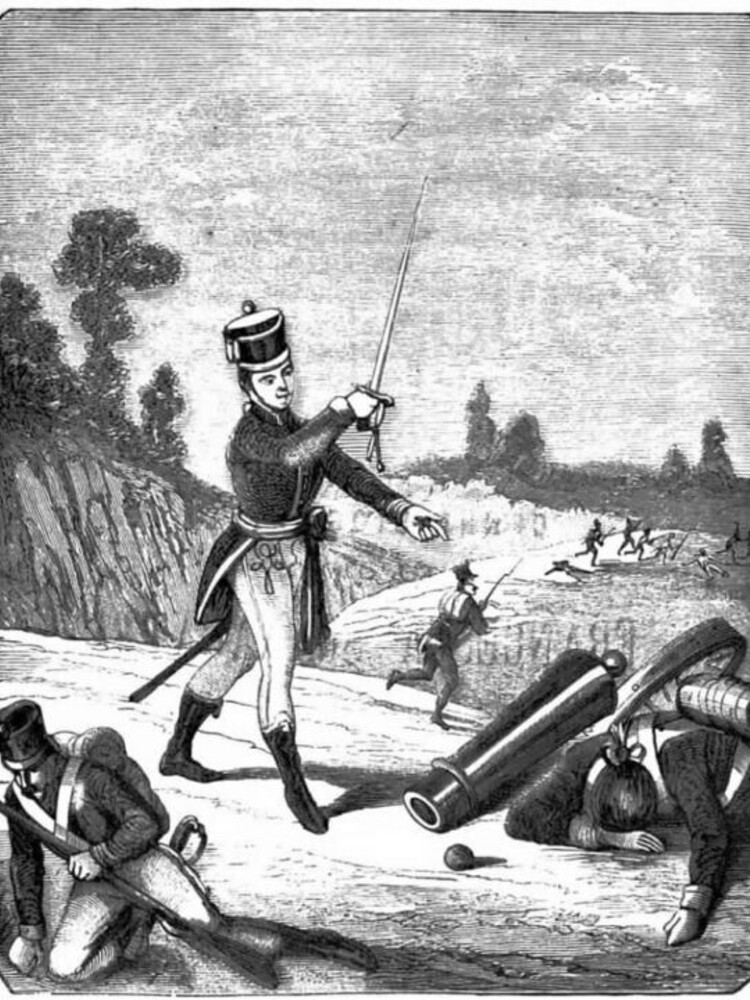They had fought on opposite sides on the battlefield where they celebrated the myth of Mars, and then shared the nuptial bed in the sign of Venus as husband and wife. The Austrian lieutenant Franz Scanagatta was in fact the Milanese Francesca Antonia, born a woman and always remained so, who had pursued the desire for military life and is considered the first officer in history, who married her colleague Celestino Spini in 1804, at the time a lieutenant of the mounted hunters but of the French revolutionary army. For four years, from 1797 to 1801, Scanagatta had managed to hide from everyone that she belonged to the fairer sex, she had raised her sword against the French and, having returned to civilian life, she had six children, dying on November 20th 160 years ago, in 1864, in his Milan. A cultured and polyglot woman educated in women’s colleges, she seemed to be on her way to her destiny as a wife and mother when her brother Giacomo, initiated by his father Giuseppe, a finance superintendent, into a military career at the Imperial Academy of Wiener Neustadt, who fell ill during the transfer, confessed to her who didn’t have this vocation at all. She then used her letter of introduction and on July 1 entered her place at the Theresianische Militärakademie in Vienna instead of crossing the threshold of a college to improve her knowledge of German and complete her studies. He was 18 years old.
Training and studies at the highest level and experience in war
She bandaged her breasts and, living in the annex of the surgeon of the Imperial General Staff, Doctor Haller, to whom Giuseppe Scanagatta had recommended Giacomo, none of the students suspected that she was a girl. The father’s attempts to bring his daughter back to her social role were useless: she followed the lessons and training, rode like a man, distinguished herself in her studies with a merit certificate for two consecutive years, and Haller himself in a letter in Latin ( Giuseppe did not speak German) begged him to let his godson Franz/Franciscus pursue the career he had chosen: in his correspondence the doctor used the masculine form, and the steward the feminine one. In any case, on 16 February 1797, cadet Franz passed his final exams with flying colors and took the rank of ensign. At her request she was sent to a garrison infantry unit on the Rhine, the border with revolutionary France at war with what was still the Holy Roman Empire, and subsequently to Austrian Poland. Despite a period of illness, between February and April 1799, no one noticed that she was a woman, while some covert doubts about her sex had begun to circulate among her fellow soldiers in the unit. From the reserve he requested and obtained to be transferred to the war zone. At the end of the year he participated in the actions against the Ligurian Republic, in the Genoese area, where the standard bearer Scanagatta brilliantly conducted a containment maneuver to allow the retreat of the Austrian army.
Marriage to a knight who had fought with the French against her
The 6th battalion of which it was part was moved first to the territory of the Duchy of Parma and Piacenza, then to Livorno. Taking advantage of an assignment in Milan, Francesca had the opportunity to see her parents again in Cremona in February 1800, who again tried to convince her to abandon her career in arms. In March he received the coveted ranks of lieutenant, but in the same period his father Giuseppe turned to the imperial commissioner who tactfully informed the general commander of the Austrian army to dismiss the officer involved in the siege of Genoa. On 26 April 1801 the imperial bureaucracy resolved the embarrassing case by notifying the farewell to arms which became effective on 23 May. Lieutenant Franz returned to being Francesca Scanagatta, honored by the certificates of esteem from former colleagues who had learned of her singular story and then by an annuity granted to her by the emperor. While the story began to circulate abroad, she gave up her uniform (which she had continued to wear for some time) in favor of women’s clothes and a new life consecrated on 15 January 1804 by her marriage to the lieutenant of the mounted hunters Celestino Spini who had fought in the French ranks and subsequently entered the Austrian Uhlans (lancers) corps where he retired in 1819 with the rank of major. The death of her beloved husband, which occurred at the end of 1831, threw her into a state of profound frustration.
From the Vienna Academy to the opening of Italy to women’s military careers
In 1852 Francesca sent a letter of greetings in German to the Vienna Academy which was celebrating the centenary of its foundation, signing Franz Scanagatta, lieutenant and widow of Major Spini. They responded by thanking her and asking for all her details to be included in the yearbook and in the history of the Academy published the following year. When he died at the age of eighty-eight in 1864, his world no longer existed. The Lombardy-Veneto of the Habsburgs had entered the Kingdom of Italy of the Savoys. She had fought for the emperor and wished well to that dynasty which was on its way to decline. Perhaps this is also why his story received less attention. While his name is remembered in Vienna, with a street, in the Bel Paese only in Dongo, the town where his father was originally from. The entry of women into the military career took place in Italy on 20 October 1999, with law 380 which aligned it with the NATO countries. The first officer, although in disguise, was still Franz/Francesca Scanagatta.
